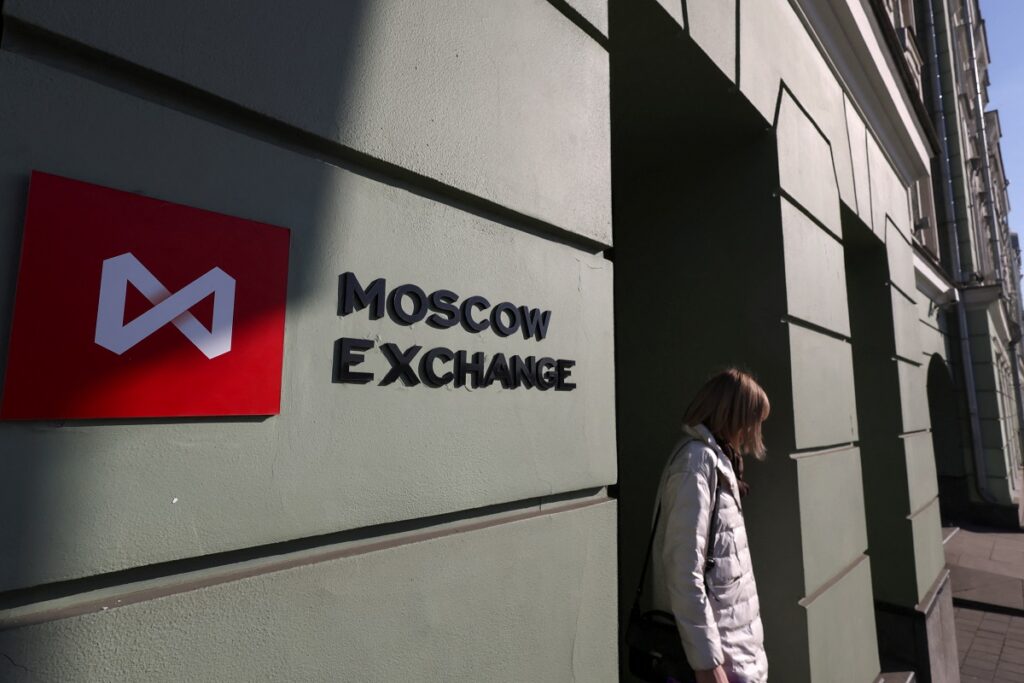- Web
- Feb 05, 2026
US sanctions force Moscow Exchange to halt dollar, euro trading
-

- Web Desk
- Jun 13, 2024

MOSCOW: The imposition of new sanctions by the United States (US) against Russia forced the Moscow Exchange, Russia’s principal financial marketplace, to quickly suspend trading in dollars and euros.
As the US announced a fresh set of sanctions against Russia, both the country’s central bank and the exchange hurriedly released statements on Wednesday, despite it being a public holiday in the land of the bear.
Read more: Preparations underway for G7 summit in Italy
Due to the newly imposed restrictive sanctions by the US government against the Moscow Exchange Group, transactions involving dollar and euro on the Moscow Exchange were temporarily halted.
Russian banks, companies, and investors were unable to conduct trading activities involving the two currencies through the central exchange. Many were forced to turn to over-the-counter (OTC) trading, with transactions conducted directly between parties without the involvement of a centralised exchange.
Despite the halt of trading, the central bank was quick to reassure the citizens regarding the security of their dollar and euro bank deposits. The share trading and money market transactions settled in dollars and euros also come to a halt, affecting the profitability of the exchange.
The sanctions immediately hit the profitability of the Moscow Exchange hard, as the suspension of trading is likely to drastically lower trading volumes. Share trading and money market transactions involving dollars and euros also stopped, causing further disruptions to the exchange’s operations.
In May, the Moscow exchange saw a significant rise in trading volume compared to the previous year, highlighting the potential economic impacts of the sanctions.
While the immediate impacts of the sanctions were clear, their broader consequences remain uncertain. Russian financial authorities have been expecting such sanctions for some time, engaging in discussions about strategies to manage currency exchange rates in case of trading halts.
Read more: EU threatens higher tariffs on Chinese electric vehicles
The abrupt imposition of sanctions highlights the volatility and uncertainty in international financial markets, with potential ripple effects reaching beyond Russia’s borders.
The announcement of the sanctions led to varied reactions within Russia. Some expressed concern about potential impacts on currency exchange rates and financial stability. Others advised against panic, opting for a more measured response.




